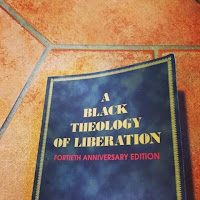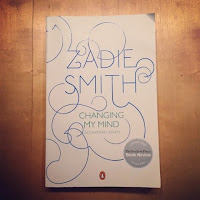Grace and peace from God our Creator, hope in our Redeemer Jesus the Christ, and the promised gifts of the Holy Spirit are with you, always.
The weather this week in Davis has totally gotten the message that it is Easter, that it is spring, that it is time for new life everywhere. The sky is blue, buds are breaking through on trees, flowers are blooming, grass is impossibly green, seasonal allergies are creeping in, and rain is in the forecast. It is fairly easy to look around at this and understand the feelings of celebration that accompany Easter. The eggs and the rabbits and the butterflies, with their metaphorical significance and their Americanized Easteriness, invite us to perhaps eat a few too many jelly beans.
If you went to church on Sunday—no shade if you didn’t, that’s what we’re here for!—the sermon you heard may have made an April Fools Day joke, because Easter fell on April 1 this year. Thanks be to God, it is now the 4th of April and so we are in no such predicament.
Except Easter is still weird! It’s still kind of unbelievable! Last week, churches all over the world walked through the story of Jesus’ last week alive on earth.
Last Sunday, we celebrated Jesus’ triumphant entry into Jerusalem, subverting the empire in all its glory. On Thursday, we commemorated the last supper with the disciples, renewed our commitment to loving service, and washed each others’ feet. On Friday, we mourned Jesus’ horrific assassination. On Saturday, we sat vigil with the body of Jesus, dead in the tomb. And then, Sunday morning, we gathered to rejoice in the resurrection hope.
Except none of us, here in this room, did that together. We were in different cities, home for spring break, or visiting congregations around town, or weren’t in church all of those days, anyway. When we left this building, it was Lent. And now we’re back, and it’s Easter! No Holy Week required.
Except Holy Week is so, so required. If we’re just at church on Sundays, we go from Palm Sunday—happily waving palm branches and blowing trumpets and cheering—to Easter—happily shouting HALLELUJAH CHRIST IS RISEN INDEED.
Except, in that case, risen from what? If we skip from Palm Sunday to Easter—which, don’t get me wrong, sounds way nice and way easy—the miracle of Jesus’ resurrection doesn’t make sense. If we do not acknowledge and sit with the day on which Jesus died, how can we truly celebrate the day he was raised from the dead?
The feelings of despair on Good Friday and Holy Saturday—days on which there is, truly, no hope—are feelings we do not want to hold on to. We do not want to sit with grief forever. We do not want to sit with pain forever. We do not want to sit with fear forever. We do not want to want to sit with anguish forever. We do not want to sit with uncertainty forever.
The friends and family of Jesus who were present at his death never expected to be there. They were there, just days before, for the big parade! That was awesome! Jesus was changing the world, and they were right there with him!
And then, he was wrenched from their grasp, and with him, their whole vision of the future. Everything they had hoped for, everything they had worked for, everything they loved...was dead. Sometimes you expect life and find death.
The next day was the Sabbath, the first one of Passover, a very holy day. They spent it in a fog, unsure what to do next. Except for three of the women. Mary the mother of James, Mary Magdalene, and Salome spent that day preparing burial spices and ritual action for the following morning. They did what they knew needed to be done to honor the now lifeless body of their friend and teacher. They prepared the spices for anointing, and set out in the pre-dawn darkness for the tomb. They discussed the practicalities of the situation—a huge stone was between them and their work. “Who will roll away the stone for us?” they wonder. The tomb was sealed when they left it. Jesus was dead, and in the tomb, and that was that.
You don’t have to work very hard to imagine their surprise when they arrive and see that the stone has been rolled away. The Gospel According to Mark puts it very plainly: “As they entered the tomb, they saw a young man, dressed in a white robe, sitting on the right side; and they were alarmed.” Alarmed? No kidding. “But he said to them, ‘Do not be alarmed; you are looking for Jesus of Nazareth, who was crucified. He has been raised; he is not here.”
This is wild, y’all. Can you envision this scene? I’m thinking wide eyes, open mouths, cold sweat; the spice jars crashing to the ground, clattering around their feet. This stranger—perhaps an angel?—calmly continues. ‘Go, tell your friends that Jesus is alive, and that you should meet him back home in Galilee.’ Oh, okay, sure. Not unexpectedly, the three terrified women turn on their heels and run. They “fled from the tomb, for terror and amazement had seized them; and they said nothing to anyone, for they were afraid.” They were instructed to go home and relay the message, but they were too afraid.
Until they weren’t! The only reason that we are here in this room tonight is because, at some point, they mustered up the courage to blurt out the biggest secret they’d ever kept. JESUS IS ALIVE! They probably shouted. Or perhaps whispered, and had to be asked to speak up. It’s a story too good to be true, isn’t it? It isn’t April Fools Day, but Easter is only for those of us foolish enough to believe the truth.
Sometimes you expect life and find death; sometimes you expect death and discover life.[1]
This unbelievable Easter story comes to us from the Gospel According to Mark, which ends, controversially, with some verses that scholars believe were added in later. In this version of the story, Jesus does not appear to the women or to the disciples. In this version of the story, “all we get is an empty tomb and some terrified women.” [2] Which works for us, because we have all been afraid. We have all been uncertain. We have all been speechless. This version of the Easter story tells us that it is okay to be afraid. This version of the Easter story also tells us that we no longer have to be afraid. That that Easter morning, and this Easter Wednesday night, Jesus who once was dead is now alive.
And, in the interest of full disclosure, I really needed to be told that this year. There has been a lot of death, and a lot of fear, and a lot of pain, and a lot of misinformation, and a lot of uncertainty, and a lot of sleepless nights, and a lot of asking God a lot of questions.
I struggled during Holy Week and even these past few days to get out of the Lenten and Good Friday darkness and into the bright sun of the Easter dawn. I don’t know if that has been true for you, too, or maybe it was last year, or maybe it will be in the future.
Fear is real. And death is real. Jesus knows that as well as anyone. But what Jesus’ resurrection tells us, every Easter, is that fear and death do not win. Fear and death do not have the final say. The power of God brings life into the world over and over and over again. Every morning is Easter morning.
You may have seen that on my facebook this week, in all capital letters. Every morning is Easter morning, from now on. You are a lucky bunch, because this year I have not chosen to sing the song to you, complete with jazz hands, as I have been known to do. So that you don’t feel entirely left out, please know that a very tacky Easter song from my upbringing includes those words—every morning is Easter morning, from now on—and reminds us that not only is Easter a 50-day-long liturgical season, but it is truly a way of life. We are the Easter people.
Hallelujah! Christ is risen, and we, too, shall rise.
[1] On Facebook, I saw this turn of phrase attributed to my friend and colleague, The Rev. TJ Freeman.
[2] I riffed (and ripped) this whole paragraph from the beautiful sermon by The Rev. Christa Compton, without whose proclamation I am not sure I would have believed, this week.



